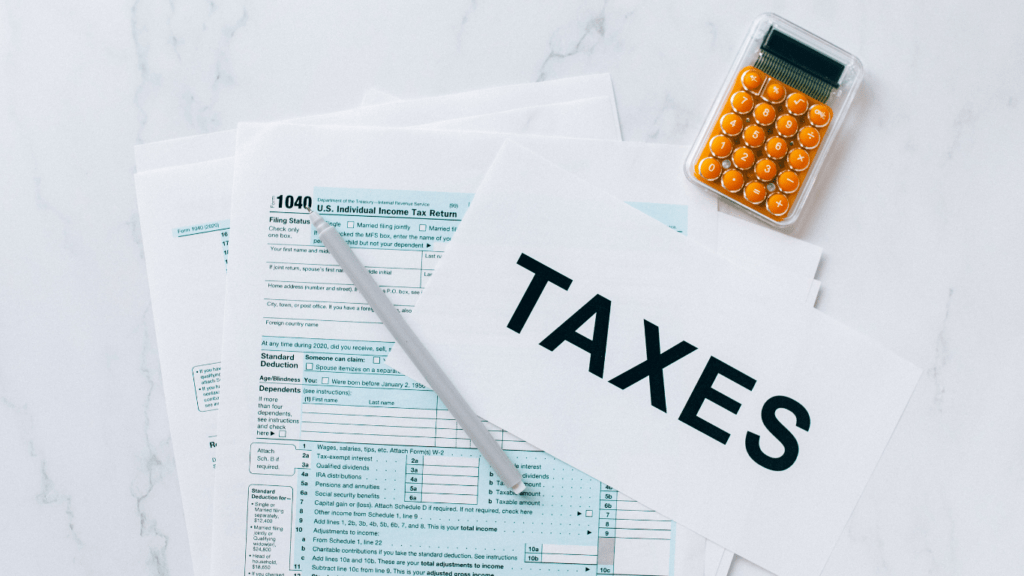Delving into the realm of taxation on gambling winnings unveils a complex web of state and federal guidelines that can significantly impact one’s financial outcomes. As a seasoned expert in the field, I’ve navigated the intricate landscape of tax laws governing these earnings, shedding light on the nuances that every gambler should be aware of.
Understanding the interplay between state and federal regulations is crucial for individuals seeking to optimize their tax liabilities while engaging in the exhilarating world of gambling. In this article, I’ll unravel the mysteries surrounding the taxation of gambling winnings, providing clarity on how these rules apply at both the state and federal levels.
Stay tuned as we embark on a journey to demystify the tax implications of striking it big in the realm of games of chance.
Understanding Gambling Winnings Taxation
Delving into the realms of gambling winnings taxation exposes a labyrinth of regulations that can significantly impact one’s financial landscape. As a tax law aficionado, I navigate the intricate web of both state and federal guidelines to illuminate the path towards comprehending the tax implications of your gambling successes.
These regulations intertwine in a complex dance, shaping the way in which your winnings are taxed. Let’s dissect these rules to equip you with the knowledge needed to navigate the tax terrain effectively.
Federal Taxation Guidelines
When it comes to federal taxation on gambling winnings, it’s crucial to understand the specific guidelines set forth by the Internal Revenue Service (IRS). Let’s delve into the key aspects of federal tax regulations related to gambling earnings.
Reporting Winnings to the IRS
As per IRS regulations, all gambling winnings, regardless of the amount, are considered taxable income and must be reported on your federal tax return. This includes winnings from casinos, lotteries, raffles, and any other form of gambling that results in cash prizes or rewards.
It’s essential to keep accurate records of your winnings and losses, as you’ll need to report both figures on your tax return.
Tax Rates on Gambling Winnings
The tax rate applied to your gambling winnings depends on the type of gambling activity and the amount you win. Generally, gambling winnings are subject to a flat tax rate of 24% for federal income tax purposes.
However, if your winnings exceed a certain threshold or if you don’t provide your Social Security number to the payer, the rate could be higher. Understanding and adhering to the federal taxation guidelines on gambling winnings is crucial to avoid potential penalties or issues with the IRS.
By accurately reporting your winnings and knowing the applicable tax rates, you can navigate the federal tax landscape related to gambling with confidence.
State Taxation Guidelines
When it comes to state taxation guidelines on gambling winnings, there are variations in state tax laws that individuals should be aware of. Each state has its own regulations regarding the taxation of gambling income, which can impact how much tax one owes based on their winnings.
Understanding these variations is essential in ensuring compliance with state tax laws.
Differences in Tax Treatment
In the United States, some states do not impose any state income tax on gambling winnings. For example, individuals in states such as Nevada, Florida, Texas, and Wyoming do not need to pay state income tax on their gambling earnings.
Conversely, states like California, New York, and Pennsylvania tax all income, including gambling winnings. It’s crucial to be aware of these differences to accurately report and pay the necessary state taxes on gambling winnings, depending on the state of residence.
State-Specific Regulations
Each state has its own rules regarding the reporting and taxation of gambling winnings. For instance, some states may have lower or higher tax rates on gambling income compared to others. Additionally, states may have specific requirements for documentation and reporting of gambling winnings on state tax returns.
Being familiar with the regulations in one’s state of residence is vital to avoid any issues with tax authorities and ensure compliance with state tax laws.
Reciprocal Agreements
In certain cases, states may have reciprocal agreements that affect the taxation of gambling winnings. These agreements determine how residents of one state who earn income in another state are taxed on that income.
Understanding these agreements is crucial for individuals who gamble across state lines or earn winnings in states where they are not residents. It’s essential to be aware of any reciprocal agreements that may impact the taxation of gambling winnings to avoid double taxation or non-compliance with state tax laws.
Tax Deductions and Credits
Moving on to Tax Deductions and Credits, it’s important to understand that tax deductions and credits can play a significant role in offsetting gambling winnings. While gambling winnings are indeed taxable, certain expenses related to gambling activities can be deducted to reduce the overall taxable income.
- Gambling Losses Deduction: One key deduction available to offset gambling winnings is the deduction for gambling losses. As per the IRS guidelines, you can deduct gambling losses up to the amount of your winnings, but only if you itemize your deductions on Schedule A.
- Professional Gambling Expenses: For professional gamblers, expenses related to their gambling activities can be deducted as business expenses. This includes travel expenses to and from gambling events, entry fees, equipment costs, and other necessary expenses directly related to their gambling profession.
- Tax Credits: While deductions reduce the amount of income that is subject to tax, tax credits directly reduce the amount of tax owed. It’s essential to explore if you’re eligible for any tax credits that can help lower your overall tax liability. In some cases, credits related to specific activities or investments may be available to offset gambling winnings tax.
By leveraging tax deductions and credits effectively, individuals can optimize their tax situation related to gambling winnings and ensure compliance with state and federal tax regulations. It’s advisable to consult with a tax professional to navigate the complexities of tax deductions and credits in the context of gambling activities.


